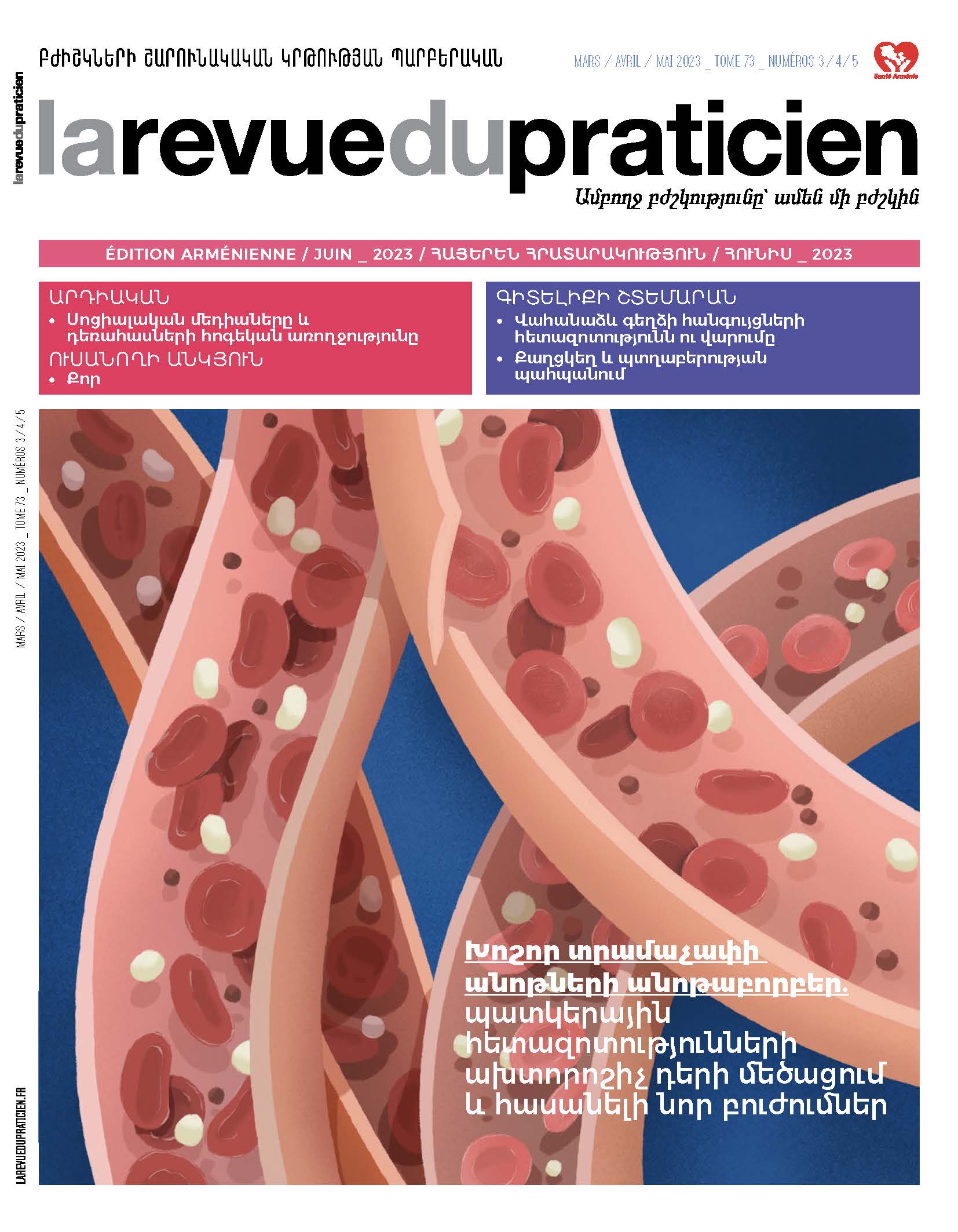Ամփոփագիր
Ֆրանսիայում 2018 թվականին արձանագրվել է կրծքագեղձի քաղցկեղի ավելի քան 58000 նոր դեպք, որոնցից 15-20 %-ը՝ HER2-ի գերէքսպրեսիայով (գերարտահայտվածությամբ)։ HER2-ը թիրախավորող բուժումները խորապես ձևափոխել են հիվանդների վարումը, նախ՝ միակլոնային հակամարմինների (օրինակ՝ տրաստուզումաբ և պերտուզումաբ), թիրոզին կինազի արգելակիչների, (օրինակ՝ տուկատինիբ), իսկ վերջերս հակամարմին-դեղանյութ կոնյուգատների (ՀԴԿ)՝ առաջին հերթին տրաստուզումաբ դերուքստեկանի կիրառման շնորհիվ:
Տեղայնացված փուլում տրաստուզումաբի հետ համակցված մինչվիրահատական քիմիաթերապիան ներկայումս դարձել է ստանդարտ ռազմավարություն, որը հնարավորություն է տալիս հետվիրհատական ռազմավարությունը հարմարեցնել բուժման պատասխանին մեկ այլ ՀԴԿ-ի՝ տրաստուզումաբ էմտանզինի (T-DM1-ի) կիրառմամբ՝ հյուսվածաբանական ամբողջական պատասխանի բացակայության պարագայում:
Այս տարատեսակ բուժական նվաճումները հանգեցրել են կրծքագեղձի HER2+ քաղցկեղի կանխատեսման զգալի բարելավման ինչպես մետաստազային, այնպես էլ տեղայնացված փուլում։
MeSH.
Ado-Trastuzumab Emtansine/therapeutic use,
Breast Neoplasms/drug therapy,
Female,
Humans,
ErbB-2/therapeutic use,
Trastuzumab/therapeutic use,
Treatment Outcome.
Հիմնաբառեր.
կրծքագեղձի նորագոյացություններ:
